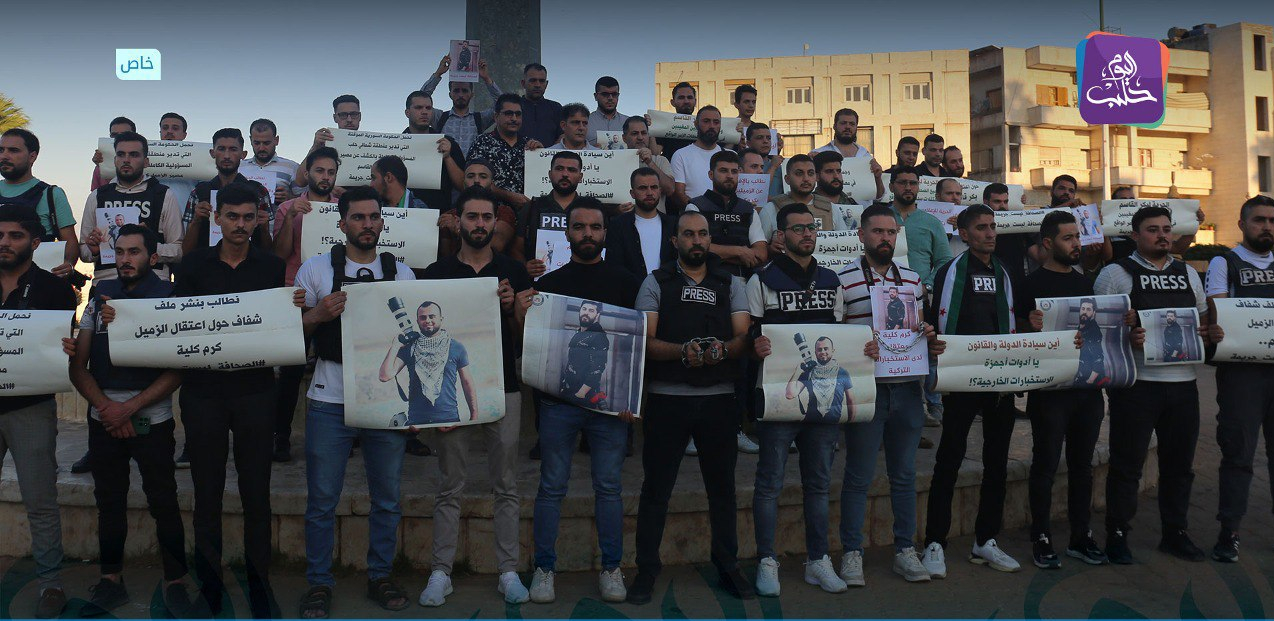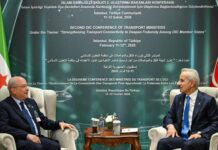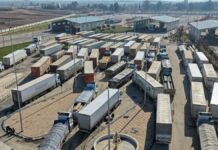
Pressure is mounting on Turkish-backed forces and Turkish intelligence for the release of Syrian journalist Bakr Qasim, who has been held in arbitrary detention since August 26. Qasim, a freelance journalist who has worked with Turkey’s Anadolu Agency and Agence France-Presse (AFP), was detained by the Syrian National Army’s (SNA) Military Police in al-Bab city, eastern rural Aleppo, alongside his wife, fellow journalist Nabiha Taha.
The couple was intercepted at the Aleppo Roundabout area after covering the al-Bab Trade Exhibition. Although his wife was released an hour later, Qasim was transferred to a detention center in Houar Kellis, a facility linked to Turkish intelligence, without any judicial warrant or explanation for his arrest. His media equipment was confiscated, and he has been denied contact with his family or access to legal representation.
The Syrian Network for Human Rights (SNHR) has condemned Qasim’s detention, emphasizing the unlawful nature of his arrest. “The SNA’s detention practices mirror those of the Assad regime, with no judicial warrants, abductions in public places, and a complete disregard for due process,” SNHR said in a statement. The organization called for Qasim’s immediate release and compensation for the harm he has suffered, stressing the importance of protecting media workers under international humanitarian law.
Protests have erupted across northern Syria in response to Qasim’s detention, with journalists and media organizations demanding his release. On August 28, journalists in Azaz, another SNA-controlled city, organized a protest to denounce the arrest of Qasim and another journalist, Karam Kulliyeh, who has been held by Turkish intelligence since June.
Yeganeh Rezaian, interim Middle East and North Africa program coordinator at the Committee to Protect Journalists (CPJ), expressed grave concerns over the situation. “We are deeply concerned that opposition factions have detained journalist Bakr al-Qasim without explanation and transferred him to the custody of Turkish intelligence,” Rezaian said. “The opposition factions must stop imitating Bashar al-Assad’s aggressive approach towards the media, and local authorities must immediately release al-Qasim and stop detaining journalists.”
Despite these calls, Abdul Rahman Mustafa, head of the interim government that politically oversees the SNA, claimed he was unaware of Qasim’s arrest. He suggested that if the issue was related to press freedom, it would be addressed promptly. However, no further action or investigation has been reported.
In its statement, SNHR highlighted the failure of the SNA to create a safe environment for independent journalism, citing numerous attacks on media workers that remain uninvestigated. The organization warned that Qasim’s detention could result in another case of enforced disappearance, a fate that has befallen 85% of detainees in the region.
Reporters Without Borders has also condemned the arbitrary detention of Qasim and Taha, calling for the immediate release of Qasim and the return of his confiscated equipment. The organization noted that Syria remains one of the most dangerous countries for journalists, ranking 179th out of 180 in the 2024 World Press Freedom Index.








